Related Research Articles

Henry Austin Bruce, 1st Baron Aberdare, was a British Liberal Party politician, who served in government most notably as Home Secretary (1868–1873) and as Lord President of the Council.
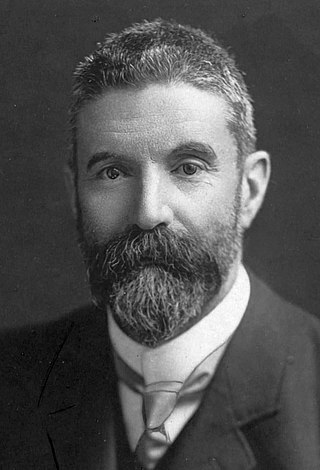
Alfred Deakin was an Australian politician who served as the second prime minister of Australia from 1903 to 1904, 1905 to 1908 and 1909 to 1910. He held office as the leader of the Protectionist Party, and in his final term as that of the Liberal Party. He is notable for being one of the founding fathers of Federation and for his influence in early Australian politics.
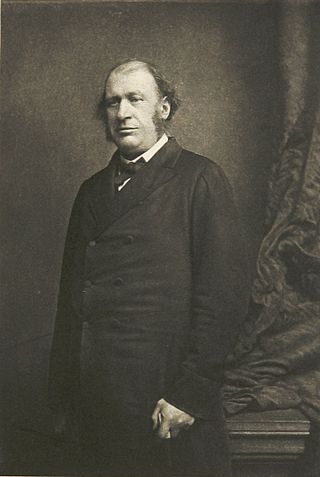
Sir James Fitzjames Stephen, 1st Baronet, KCSI was an English lawyer, judge, writer, and philosopher. One of the most famous critics of John Stuart Mill, Stephen achieved prominence as a philosopher, law reformer, and writer.

Archibald Philip Primrose, 5th Earl of Rosebery, 1st Earl of Midlothian was a British Liberal Party politician who served as Prime Minister of the United Kingdom from March 1894 to June 1895. Between the death of his father, in 1851, and the death of his grandfather, the 4th Earl of Rosebery, in 1868, he was known by the courtesy title of Lord Dalmeny.

Arthur Wellesley Peel, 1st Viscount Peel,, was a British Liberal politician, who sat in the House of Commons from 1865 to 1895. He was Speaker of the House of Commons from 1884 until 1895, when he was raised to the peerage.

John Duke Coleridge, 1st Baron Coleridge was an English lawyer, judge and Liberal politician. He held the posts, in turn, of Solicitor-General for England, Attorney-General for England, Chief Justice of the Common Pleas and Lord Chief Justice of England.
The General Secretary of the TUC is the chief permanent officer of the Trades Union Congress, and a major figurehead in the trade union movement in the United Kingdom.
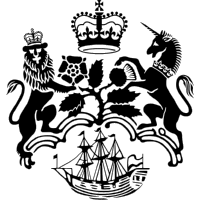
The Board of Trade is a British government body concerned with commerce and industry, currently within the Department for Business and Trade. Its full title is The Lords of the Committee of the Privy Council appointed for the consideration of all matters relating to Trade and Foreign Plantations, but is commonly known as the Board of Trade, and formerly known as the Lords of Trade and Plantations or Lords of Trade, and it has been a committee of the Privy Council of the United Kingdom. The board has gone through several evolutions, beginning with extensive involvement in colonial matters in the 17th century, to powerful regulatory functions in the Victorian Era and early 20th century. It was virtually dormant in the last third of the 20th century. In 2017, it was revitalised as an advisory board headed by the International Trade Secretary who has nominally held the title of President of the Board of Trade, and who at present is the only privy counsellor of the board, the other members of the present board filling roles as advisors.

Reginald Baliol Brett, 2nd Viscount Esher, was a British historian and Liberal Party politician, although his greatest influence over military and foreign affairs was as a courtier, member of public committees and behind-the-scenes "fixer", or rather éminence grise.

Anthony John Mundella was an English manufacturer and later a Liberal Party MP and Cabinet Minister who sat in the House of Commons of the United Kingdom from 1868 to 1897. He served under William Ewart Gladstone as Vice-President of the Committee of the Council on Education from 1880 to 1885 and as President of the Board of Trade in 1886 and from 1892 to 1894. As education minister he established universal compulsory education in Britain and played the major part in building the state education system. At the Board of Trade he was instrumental in the reduction of working hours and the raising of minimum ages in the employment of children and young people. He was among the first to prove the effectiveness of arbitration and conciliation in industrial relations. He also brought in the first laws to prevent cruelty to children. His political achievements in the late Victorian age are said to have anticipated 20th century society.

William Baliol Brett, 1st Viscount Esher, PC, known as Sir William Brett between 1868 and 1883, was a British lawyer, judge, and Conservative politician. He was briefly Solicitor-General under Benjamin Disraeli and then served as a justice of the Court of Common Pleas between 1868 and 1876, as a Lord Justice of Appeal between 1876 and 1883 and as Master of the Rolls. He was raised to the peerage as Baron Esher in 1885 and further honoured when he was made Viscount Esher on his retirement in 1897.

Frederic(k) Michael Coleridge Mackarness born at Tardebigge, Saint Bartholomew, Worcestershire, England was a British barrister, judge and Liberal politician and Member of Parliament for the Newbury constituency.
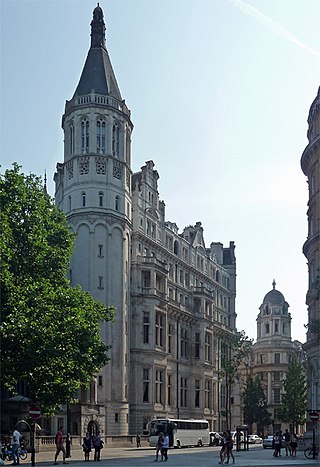
The National Liberal Club (NLC) is a London private members' club, open to both men and women. It was established by William Ewart Gladstone in 1882 to provide club facilities for Liberal Party campaigners among the newly enlarged electorate following the Third Reform Act in 1884, and was envisioned as a more accessible version of a traditional London club.

The Elementary Education Act 1870, commonly known as Forster's Education Act, set the framework for schooling of all children between the ages of 5 and 12 in England and Wales. It established local education authorities with defined powers, authorized public money to improve existing schools, and tried to frame conditions attached to this aid so as to earn the goodwill of managers. It has long been seen as a milestone in educational development, but recent commentators have stressed that it brought neither free nor compulsory education, and its importance has thus tended to be diminished rather than increased.
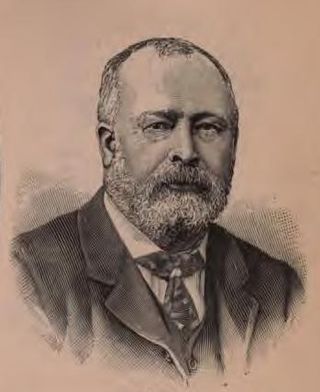
Henry Broadhurst was a leading early British trade unionist and a Lib-Lab politician who sat in the House of Commons for various Midlands constituencies between 1880 and 1906.

The Sheffield Trades and Labour Council, usually known as the Sheffield Trades Council, is a labour organisation uniting trade unionists in Sheffield.
Bradford Trades Council brings together trade unionists in and around Bradford, in West Yorkshire in England.
The Notts Trades Council, formally known as the Nottinghamshire Nottingham and Mansfield Trades Council, brings together trade unionists in Nottinghamshire, in England.
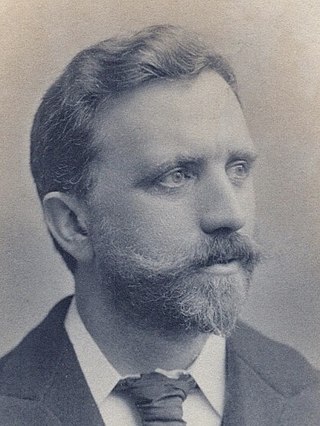
Anthony John Mundella, known as Anthony Mundella, was an English journalist, education reformer and campaigner for child welfare. After working as Private Secretary to his namesake uncle, Rt Hon Anthony John Mundella, a Liberal Party Member of Parliament and Cabinet Minister, he became a journalist and parliamentary sketch writer for The Manchester Guardian. He was elected Chairman of the Press Gallery. Subsequently, he was for 35 years Secretary of the National Education Association, and campaigned for a free progressive system of national education, publicly controlled and free from sectarian interest. He was well known in the House of Commons and much sought after by MPs and government ministers for his wide knowledge and expertise in educational reform and child welfare. It is said that he was responsible more than any other for the abolition of the injurious employment of children of school age.
References
- ↑ "COLL MISC 1015 - Gas Stokers' Strike". British Library of Political and Economic Science. London School of Economics and Political Science. Retrieved 9 September 2015.
- ↑ "Members of the Gas Stokers Defence Committee, 1873". The Union Makes Us Strong: TUC History Online. London Metropolitan University . Retrieved 9 September 2015.
- ↑ Equivalent today to the secondranking Minister of State in the ministerial hierarchy.
- ↑ "Gas stokers' plea for clemency, 1873 PRO HO 45/9326/18243, no. 28". The National Archives . Retrieved 9 September 2015.
- ↑ Curthoys, Mark (2004). Governments, Labour, and the Law in Mid-Victorian Britain: The Trade Union Legislation of the 1870s. Oxford University Press. doi:10.1093/acprof:oso/9780199268894.001.0001. ISBN 9780199268894.